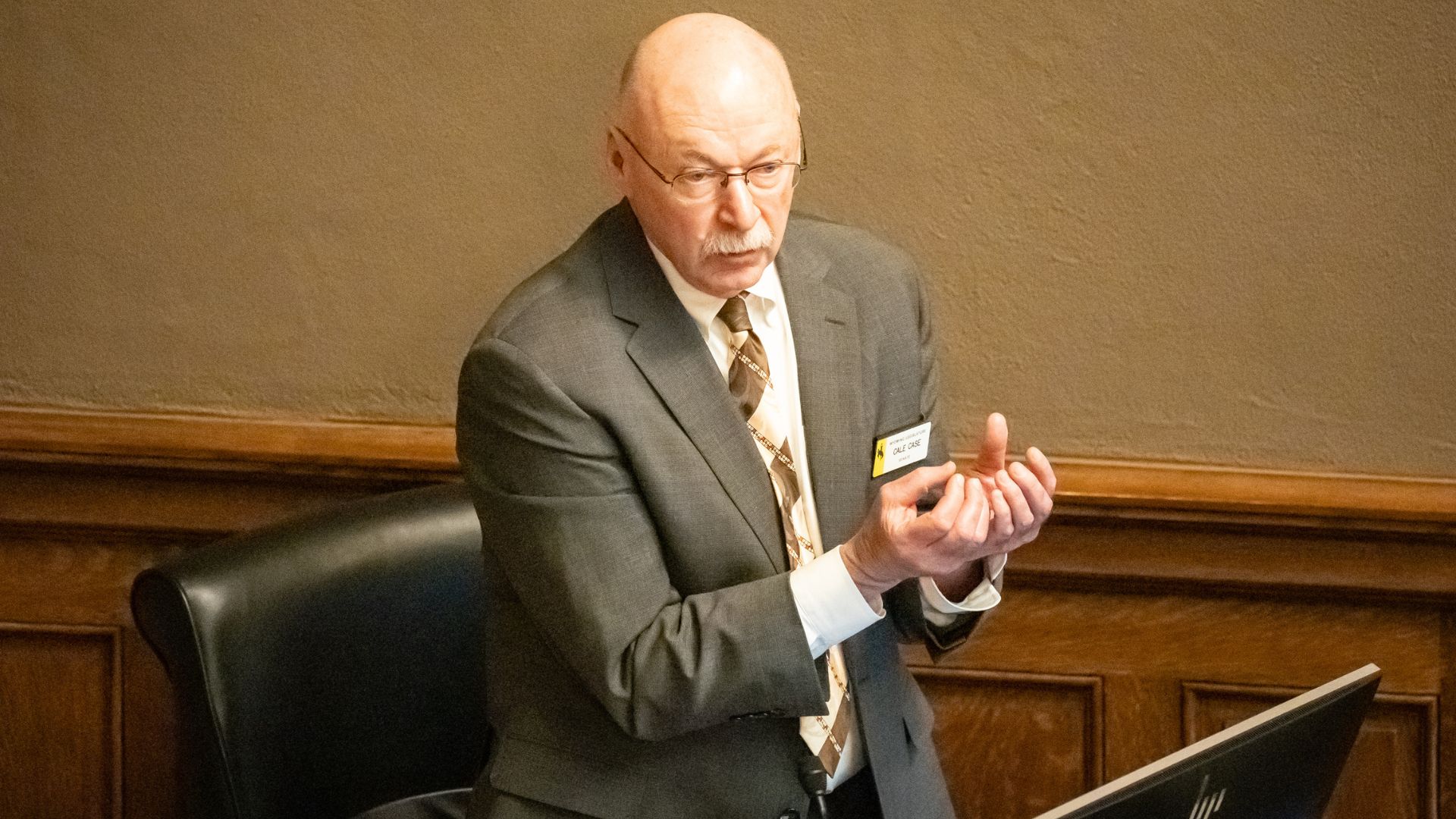Gordon signs Religious Freedom Restoration Act measure into law

Sen. Cale Case, R-Lander, photo by Michael Smith
CHEYENNE — Wyoming joined 28 other states in passing its own state-level Religious Freedom Restoration Act after Gov. Mark Gordon signed House Bill 207 on Thursday.
After Congress passed the Religious Freedom Restoration Act in 1993, a U.S. Supreme Court decision later found it violated the Constitution as it extended to the state and local levels. In City of Boerne v. Flores, the high court decided Congress could not create a religious exemption that would be generally applicable to state and local laws.
Since this decision, 28 states have passed RFRA laws, and nine other states have effectively done so through their court systems.
House Bill 207, primarily sponsored by Rep. Art Washut, R-Casper, protects religious exercise and observance by people, including corporations, from state government interference. The bill prevents state action from “burdening” a person’s ability to exercise their freedom of religion, including state laws with general applicability.
An exemption is made for a state law where there is proven “compelling governmental interest” that is pursued in the least-restrictive way possible.
Washut previously told House Judiciary Committee members the purpose of the bill is to change the standard a judge uses to evaluate cases regarding religious freedom.
The Senate added two amendments to the bill after it crossed over unamended from the House of Representatives. A standing committee amendment passed during the first floor reading in the Senate aligns definitions in the bill with the federal RFRA and other, similar state acts.
“This bill is really about process, and process only,” said Sen. Barry Crago, R-Buffalo.
“It ensures every Wyomingite, regardless of their belief system or political power or understanding, receives a fair hearing when the government seeks to force that person to violate his or her religious beliefs.”
Sen. Cale Case, R-Lander, who voted against the bill, asked how far a person could go in claiming religious interference, such as being required to take a vaccine. Crago referred to the test provision in the bill, where the state must prove it has compelling interest and is furthering that interest in the least-restrictive way possible.
“That’s up to the courts to decide,” Crago said.
Sen. Jared Olsen, R-Cheyenne, also noted in the bill that the belief must be a “sincerely held religious belief.”
The point of the bill, Crago concluded, is to give people a better standing in court when they feel their religious exercise or belief has been violated by the state government.
“We’re not picking winners and losers,” Crago said. “We’re just giving folks their fair day in court.”
The heart of the bill, he said, provides declaratory and injunctive relief to those who feel their religious rights have been violated. Crago successfully added an amendment that removed language regarding civil actions and unlimited damages.
Majority Floor Leader Sen. Tara Nethercott, R-Cheyenne, who strongly supported Crago’s amendment, said she counted 19 bills at that time that eliminated governmental immunity and authorized “unlimited financial damages to government entities related to non-negligent actions of the government.”
“If you are concerned about any other funding of government, you should be concerned about that trend,” Nethercott said.
The bill is effective July 1.
This story was published on March 7, 2025.








